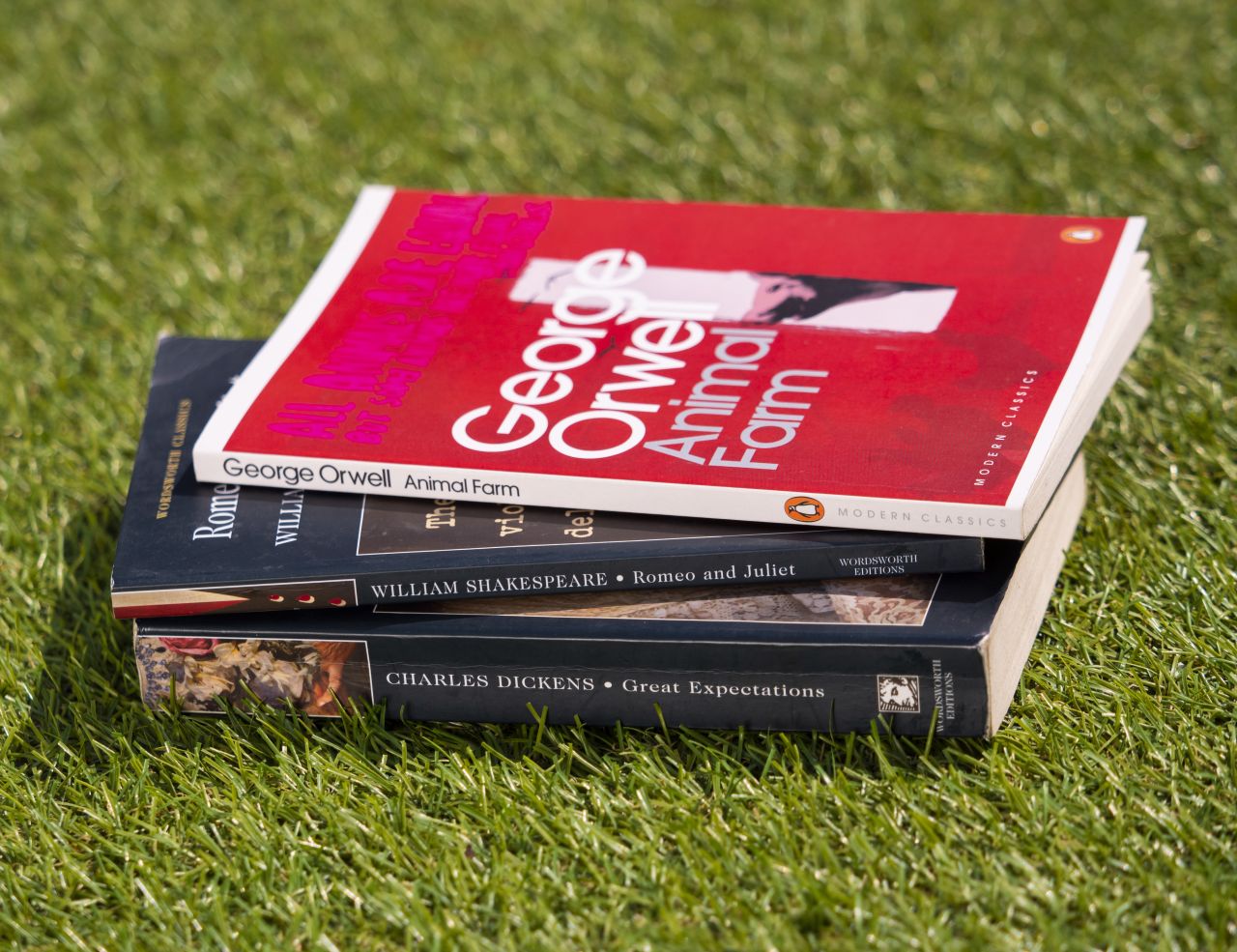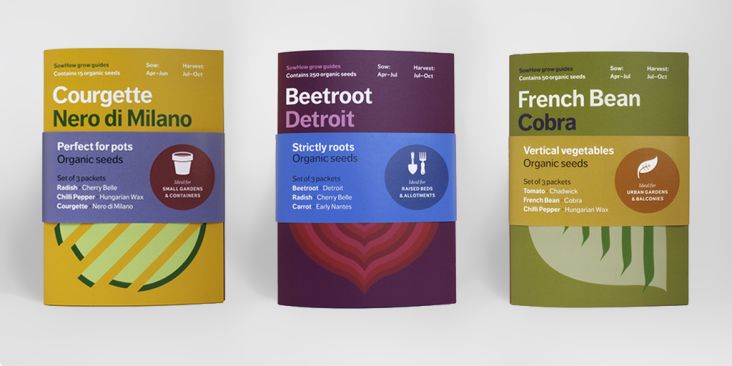Top copywriting tips from Hemingway, Jane Austen, George Orwell, and more
Talent borrows, genius steals, so stealing from geniuses must be genius. Let the musings and trademark traits of long-dead – but still-revered – authors inspire you, and your blog, website or tweets will be all the more memorable for it.

Image licensed via Adobe Stock / By lenscap50
Jane Austen - The all-seeing eye of human behaviour
Top Tip: Be a keen observer of people and their motivations.
Arguably the most perceptive writer of all time, Jane Austen could articulate what it means to be human better than most. She was super-insightful to the point of X-ray vision. Her love stories told truths like:
Nothing is more deceitful than the appearance of humility. It is often only carelessness of opinion, and sometimes an indirect boast.
And Jane Austen had never even heard of Facebook – in her world; a status meant Lady of the Manor.
But she speaks the truth: the above was right in the 1700s, and it’s true now.
Two quick takeaways from Jane Austen:
Be sincere, even if it does mean boasting a little. If you’re excited about something, say so. People respect that more than false modesty.
To humanise your copy/sales pitches, etc., think about how relevant your ideas might have been to Jane Austen. If you can imagine they’d make sense to her – probably with some explanation on what an app and a Mac are, and what a cloud is nowadays – you might be offering some universal human insight, and very possibly, saying something genuinely interesting.
Ernest Hemingway: Economy = Power
Top Tip: Simple is genius, brevity is beauty.
Hemingway’s legacy is much larger than the books he wrote. His writing style has often been imitated, and to a certain extent, it’s a good idea to let his economical prose influence your work.
To help you whittle and trim till every word adds to the spirit and meaning, with absolutely no passengers, study the short stories in Hemingway’s collection Men Without Women – you’ll find him mostly writing in sentences a five-year-old could understand.
As the man himself says: Prose is architecture, not interior decoration, and the Baroque is over.
The quickest route to make your point is usually the most powerful. When you’re writing online, keep it super simple.
Use short active sentences with no passive voice.
Without a boring grammar recap, that’s the difference between 'Sitting on the Dock of the Bay' and 'The Dock of the Bay was getting sat on by me.'
Do: Say what’s happening, to what.
Don’t: Start with the thing stuff happened to, then say what happened to it.
If you churn out a long-winded clunky sentence, getting the action (verb) in earlier could well be how to shorten it and make things easy for your reader.
Mind the gap, avoid it
If you think your prose is lacking oomph take another cue from Hemingway. He got power in his sentences by always talking about something, not the gap around it. It’s about the words you choose, e.g. if you’re describing someone receiving an accolade, say it was “deserved”, not the pointlessly long-winded “not undeserved.” Doing this empowers and emboldens your style.
Like Hemingway says: “All you have to do is write one true sentence. Write the truest sentence that you know.”
Sounds like he would have been a don on Twitter.
George Orwell - To Stand Out, Stand for Something
Top tip: Research it, Think it, Mean it.
Famous for Animal Farm and 1984, George Orwell has stood the test of time because he truly stood for something: anti-fascism and anti-Stalinism.
A socialist but not a communist, he used his penmanship to showcase his world view, saying things like One does not establish a dictatorship to safeguard a revolution; one makes a revolution to establish a dictatorship. and... Freedom is the right to tell people what they do not want to hear.
You might not be tackling such global issues as Orwell. Still, if you can make a few people’s lives a little better, maybe with a few tips or insights or by speaking out on the political issues that face your industry, you might be en route to building an audience of like-minded souls. Best place to start is to say how you feel. Be bold. Have an opinion and shout it loud.
As Orwell says: "For a creative writer, possession of the 'truth' is less important than emotional sincerity."
F Scott Fitzgerald: Life is Art, Art is Life
Top Tip: Put your whole personality into your work.
F Scott Fitzgerald was the master of the roman á clef. Apart from The Great Gatsby, which he saw as his attempt at meaningful art, most of his books are thinly-veiled accounts of his day-to-day life. Huge swathes of Tender is the Night were copied out verbatim from his wife Zelda’s diary.
“To write it, it took three months; to conceive it three minutes; to collect the data in it all my life.”
Your life experiences and how you surmounted challenges will always make good reading to people in the same situation/sector/vocation as you.
Don’t be afraid about making yourself the central character in a documentary about your working life. You don’t want to go all-out warts ‘n’ all - nobody likes an over-sharer - you want to keep your professional cred. But neither should you write with a wart-free Hollywood sheen, because that’s not how life is, and you want your work to be authentic.
As Scott says, “What people are ashamed of usually makes a good story.”
Somewhere just before that stage is the perfect balance of divulgence - open, but not cringingly OTT. Experiment and show a trusted friend before you publish.
Edgar Allen Poe - The Master of Metre
Top Tip: Take your time and build a rhythm.
People operate so much on autopilot these days that it’s a fatal mistake to only talk to the conscious brain. One way to keep the autopilot on track is to take a cue from Edgar Allen Poe.
In poetry, Metre means rhythm, and is made up of ‘feet’ – a foot is a syllable. In Poe’s epic horror poem The Raven, those feet stomp along to a set 8-step rhythm that never errs – the effect is gripping, you feel the beat in your bones as the tension builds.
“Back into the chamber turning, all my soul within me burning,
Soon again I heard a tapping somewhat louder than before.
'Surely,' said I, 'surely that is something at my window lattice;
Let me see then, what thereat is, and this mystery explore -
Let my heart be still a moment and this mystery explore; -
'Tis the wind and nothing more!'”
You’re probably not going to be busting rhymes on your blog but writing in a strict rhythm helps keep the easily distractible glued to your prose, because the autopilot enjoys the controlled nature of the words – it’s less effort to process.
To get a solid beat going, make sure all your part sentences take the same amount of time to read them. Don’t bother getting a stopwatch on it. Still, if each part of a sentence has the same amount of emphatic syllables (some get skipped over) – and longer sentences are deftly broken up by a variety of punctuation – then that’s an excellent start.
James Joyce - Mister Motivator
Top Tip: Stay motivated by focusing on why you’re doing it.
I’m no fan of Joyce, and he’s the antithesis of how to write to modernistic Twitter brains, with his rambling prose where not much happens. But I enjoy some of his quotes, particularly this:
“I am tomorrow, or some future day, what I establish today. I am today what I established yesterday or some previous day.”
Having a lucid, insightful presence online is one of the best things you can do to build trust in your capabilities. Even people you meet first in the flesh are going to take your business card and hit up your website. So invest plenty of time and effort in having content you can be proud of, and the work will roll in.
Epilogue
Great writers take influence – Hunter S Thompson learned to write by typing out Fitzgerald’s Great Gatsby verbatim, over and over, till he’d soaked up the F Scott groove. By learning the form, he was able to filter his ideas through a gauze of Scott’s style and ultimately, Thompson invented his genre, ‘Gonzo.’
The best thing you can do to improve your writing is to read people who write with consummate skill. There’s no point reading trashy ‘mental chewing gum’ type books… but if you read those that stood the test of time, you can set your autopilot to work, while the conscious mind is thoroughly entertained. Tricking yourself into learning while you have fun, what could be better than that?






 using <a href="https://www.ohnotype.co/fonts/obviously" target="_blank">Obviously</a> by Oh No Type Co., Art Director, Brand & Creative—Spotify](https://www.creativeboom.com/upload/articles/6e/6ed31eddc26fa563f213fc76d6993dab9231ffe4_732.jpg)
 by Tüpokompanii](https://www.creativeboom.com/upload/articles/58/58684538770fb5b428dc1882f7a732f153500153_732.jpg)
















